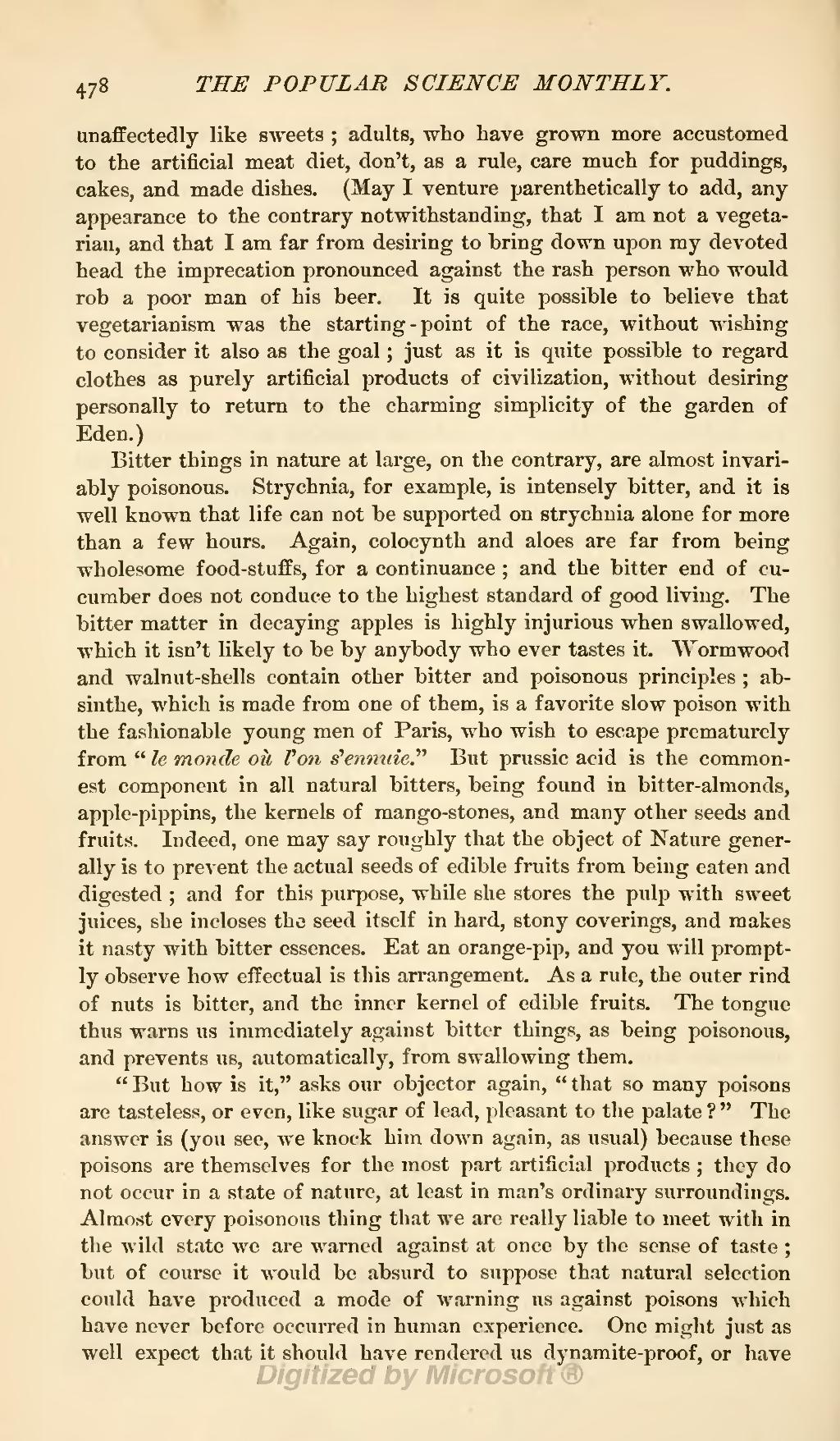unaffectedly like sweets; adults, who have grown more accustomed to the artificial meat diet, don't, as a rule, care much for puddings, cakes, and made dishes. (May I venture parenthetically to add, any appearance to the contrary notwithstanding, that I am not a vegetarian, and that I am far from desiring to bring down upon my devoted head the imprecation pronounced against the rash person who would rob a poor man of his beer. It is quite possible to believe that vegetarianism was the starting-point of the race, without wishing to consider it also as the goal; just as it is quite possible to regard clothes as purely artificial products of civilization, without desiring personally to return to the charming simplicity of the garden of Eden.)
Bitter things in nature at large, on the contrary, are almost invariably poisonous. Strychnia, for example, is intensely bitter, and it is well known that life can not be supported on strychnia alone for more than a few hours. Again, colocynth and aloes are far from being wholesome food-stuffs, for a continuance; and the bitter end of cucumber does not conduce to the highest standard of good living. The bitter matter in decaying apples is highly injurious when swallowed, which it isn't likely to be by anybody who ever tastes it. Wormwood and walnut-shells contain other bitter and poisonous principles; absinthe, which is made from one of them, is a favorite slow poison with the fashionable young men of Paris, who wish to escape prematurely from "le monde où l'on s'ennuie." But prussic acid is the commonest component in all natural bitters, being found in bitter-almonds, apple-pippins, the kernels of mango-stones, and many other seeds and fruits. Indeed, one may say roughly that the object of Nature generally is to prevent the actual seeds of edible fruits from being eaten and digested; and for this purpose, while she stores the pulp with sweet juices, she incloses the seed itself in hard, stony coverings, and makes it nasty with bitter essences. Eat an orange-pip, and you will promptly observe how effectual is this arrangement. As a rule, the outer rind of nuts is bitter, and the inner kernel of edible fruits. The tongue thus warns us immediately against bitter things, as being poisonous, and prevents us, automatically, from swallowing them.
"But how is it," asks our objector again, "that so many poisons are tasteless, or even, like sugar of lead, pleasant to the palate?" The answer is (you see, we knock him down again, as usual) because these poisons are themselves for the most part artificial products; they do not occur in a state of nature, at least in man's ordinary surroundings. Almost every poisonous thing that we are really liable to meet with in the wild state we are warned against at once by the sense of taste; but of course it would be absurd to suppose that natural selection could have produced a mode of warning us against poisons which have never before occurred in human experience. One might just as well expect that it should have rendered us dynamite-proof, or have

